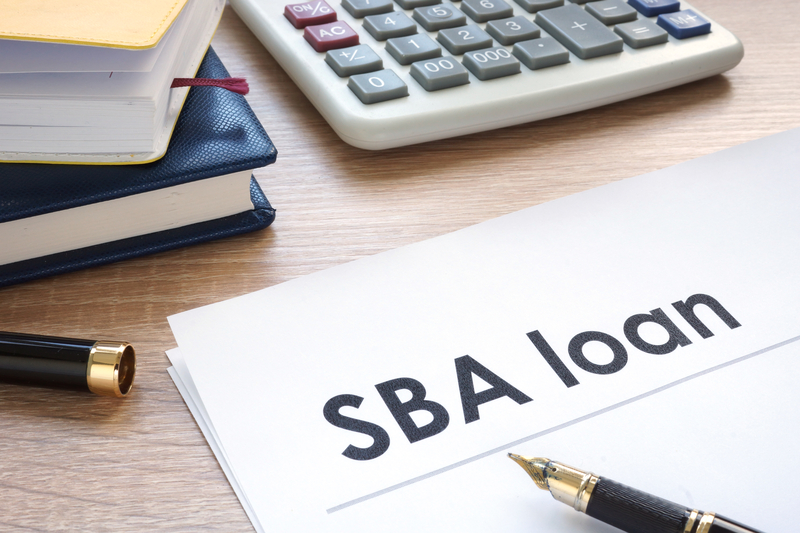What are the business sale tax implications when you sell your business in California? Of course, there will be both Federal and State Taxes due from the sale of your business; the question is how will the transaction be taxed and, can the taxes be minimized? To minimize taxes on the sale of your California business, you need to develop and implement a California business sale tax strategy. Your business broker should have a basic understanding of the concepts below and be able to discuss these concepts with your advisors.
Many business owners wrongly assume the tax rate on the sale of their business will be ordinary income which can be nearly 50% total. Other business owners assume if it is a stock sale it will be at the capital gains tax rate. Both assumptions may be wrong. The tax rate on the sale of your business will depend on the structure of the transaction and several other factors.
Tax planning is a critical aspect of selling your business. Without a California business sale tax strategy in place, you can end up with needless taxes on the sale of your business that could have been minimized and/or deferred. Tax planning for selling a business is also critical because it must be done in advance. Once the transaction is closed, there are no opportunities to reduce or minimize taxes. The transaction and taxes are set in stone.
It is important to involve your professional business broker and your tax advisor in the tax planning from the start. Your business broker will work with your tax advisor on the transaction structure which affects the tax planning when selling a business. Likewise, your tax advisor will need to develop a California tax strategy because some tax strategies are treated differently by California than Federal taxes and the IRS.
Two Types of Business Sale Transactions with Different Tax Implications
There are two types of transactions for business sales, Asset Sales and Stock Sales. The taxes for each transaction type vary depending on how the transaction is structured, the company’s assets, and balance sheet.
It is impossible to make a generalized statement that asset sales are taxed at “ordinary income” or stock sales are taxed at “capital gains”. The taxes on the sale of your business will depend on the transaction type and structure as well as the company’s assets, price allocation, and balance sheet.
Below we explain some of the typical business sale tax implications for both asset and stock sales. There are of course many more possibilities that may arise and, therefore, you should consult with your CPA and tax advisor for a detailed calculation of the taxes on the sale of your company. Your business broker will work with your CPA and tax advisors to provide them the basic transaction structure assumptions they should apply for your tax planning.
Asset sale
Asset sales are a common transaction structure for several reasons. First and foremost, asset sales offer the buyer reduced successor liability. Secondly, this transaction structure offers the buyer depreciation on the full market value of the assets and goodwill.
The downside of an asset sale, for the seller, is that part of the proceeds are taxed as ordinary income, the highest tax rate. Most sellers assume the entire transaction is taxed as ordinary income, but the tax rates on an asset sale are determined by the price allocation. Below we explain how the price allocation works.
Price Allocation
A price allocation is required by the IRS for asset business sales. The price allocation establishes the transaction asset values for tax purposes. The price allocation must add up to the total purchase value in the purchase agreement. The values assigned to each asset are negotiated between buyer and seller prior to closing and both buyer and seller must have the same price allocation. At closing, an IRS form 8594 is filed with the IRS showing the allocation for the transaction.
At Pacific Business Sales, we send the price allocation after due diligence is complete and well before closing so both buyer and seller have time to consult with their tax advisors regarding the business sale tax implications.
Most small and midsize businesses have most of the value assigned to goodwill and intangible assets with the tangible asset values usually adding up to a small portion of the total value. For the seller, goodwill and intangible assets are taxed at the capital rate (lowest tax rate) and the tangible assets are taxed as ordinary income. For the buyer, goodwill and intangible assets have a 15-year depreciation schedule and tangible assets have a much shorter depreciation period. By maximizing the allocation to goodwill, the seller can minimize taxes on the sale of the business.
The actual taxes on an asset sale are not that different from a stock sale if the price allocation is done properly. Buyers and sellers should consult with their CPA or tax advisor regarding the price allocation for their business sale or purchase. Price Allocation is often overlooked and not carefully planned with tax advisors. It is critical to discuss the price allocation with your tax advisor early in the transaction process; your business broker should also be apprised of the resulting decisions from your advisors.
Stock Sale
Stock sales are less common in business sales but are often necessary when the business has licenses such as contractor licenses, medical licenses, licensing agreements, or government or long-term contracts in the corporate entity’s name.
Sellers often want a stock sale because they believe the transaction will be taxed at the capital gains tax rate. This is not necessarily true because buyers often elect to implement IRS 338(h) or an F Reorg in a stock sale to recapture the depreciation that would otherwise be lost (see below). Should a buyer implement either of these, the seller will be taxed on the tangible assets as if they were acquired in an asset sale (ordinary income) which reduces some of the tax benefit of the stock sale.
Buyers are often reluctant to acquire businesses in a stock sale because they are concerned about potential successor liability and the loss of depreciation on the acquisition. The concern over successor liability is dealt with in the purchase agreement sections concerning indemnification, representations and warranties.
The concern over lost depreciation in the stock Sale is often dealt with by implementing either IRS 338(h)(10) or an F Reorganization, both of which allow the buyer to depreciate the assets of the business as if they were acquired in an Asset Sale. IRS 338(h)(10) and F Reorganizations are summarized below.
338(h) or F Reorganization
IRS 338(h)(10) and F Reorganizations are implemented in acquisitions structured as a stock sale to recover depreciation that would otherwise be lost. While both tax elections bring the benefit to the buyer of recapturing the depreciation for the transaction (a tax benefit), both have business sale tax implications for the seller.
Both tax codes have very specific conditions, requirements, and business sale tax implications and are complex to implement. Both buyers and sellers should review these with their respective CPAs and tax advisors in making a decision and implementation.
Read more about IRS 338(h)(10): Forbes Understanding Section 338(h)(10) Election
Read more about F Reorganization: Kiplinger What is the F Reorganization and Why is it So Popular
QSBS (Qualified Small Business Stock) Exclusion
QSBS is perhaps the best small business tax strategy for small businesses, but it only works for C Corps established after 1993 and has specific tax benefits based on when the corporation was formed.
For those C corps that meet the eligibility requirements these companies can receive up to a $10 million tax exclusion.
QSBS Eligibility Rules
To qualify for the QSBS exclusion, companies must meet specific eligibility requirements. (see link below to Morgan Stanley article on QSBS)
Some of the requirements include:
- The stock must have been issued by a US C-corporation after August 10, 1993, and the company must have aggregate gross assets of $50 million or less immediately following issuance.
- At least 80% of the company’s assets must have been actively used in trade or business (note certain businesses aren’t eligible including personal services businesses, financial services businesses, hospitality businesses, farms and others).
- The issuing company must not have had significant redemptions (defined as 5% or more aggregate value of outstanding shares) of its stock for at least two years before issuance. Similarly, shareholders who are issued qualified small business stock must adhere to certain rules.
- They must acquire the stock in exchange for money, property (not stock) or services.
- They must hold the stock for at least five years before selling or exchanging it.
- They must not have more than a de minimis amount of stock repurchased by the issuing company two years prior to, or two years after, the issuance of the stock.
- How much of the Gain is Excluded? The percentage of the gain excluded from tax on the sale or exchange of QSBS depends on when the shares were issued:
- Shares issued between August 10, 1993 and February 17, 2009 are eligible for a 50% gain exclusion, subject to a 7% alternative minimum tax (AMT) addback.
- Shares issued between February 18, 2009 and September 27, 2010 are eligible for a 75% gain exclusion, subject to a 7% AMT addback.
- Shares issued after September 28, 2010 are eligible for a 100% gain exclusion with no AMT addback. In all cases, the federal capital gains exclusion is capped at the greater of $10 million or 10x the adjusted basis of the shares.
That said, the QSBS exclusion is not available in every state for state tax exemptions. As of April 2023, QSBS is disallowed in California.
QSBS is an exceptional tax benefit for C Corps selling their business, but it has rigorous requirements and must be implemented with care as part of the transaction, prior to closing.
Sellers should seek the advice of an attorney or tax attorney familiar with QSBS when considering this and implementing it.
Read more about QSBS: Morgan Stanley “Inside the Qualified Small Business Stock (QSBS) Exclusion
Tax Planning and Tax Strategies for Selling Your Business
There are also several tax strategies a seller can implement to reduce and/or defer taxes on the sale of their business. In some instances, a seller may be able to defer up to 90% of the taxes on the sale of their business.
Sellers preparing to sell their business or in the process of selling their business should consult with a tax advisor familiar with tax strategies for business sales.
Tax strategies must be implemented well before closing the transaction many need to be implemented prior to signing an LOI or Purchase Agreement. To be safe, Sellers should discuss this with a well-qualified tax and financial advisor early in the process of selling their business.
Navigating business sales tax implications is a complex and essential part of all business sales. Pacific Business Sales works closely with highly qualified and experienced tax advisors who advise our clients on how to minimize and defer Federal and California taxes on the sale of their business. We recommend starting with our Free Market Value Analysis to determine the market value of your business and then meeting with one of our tax strategy advisors to discuss potential tax strategies for the sale of your business.
Pacific Business Sales, its broker, and its agents are not CPAs or licensed Financial Planners. This article is for informational purposes only and it is not intended to provide tax or financial advice. Readers should consult with their CPA or Financial Planner for tax and financial advice.





